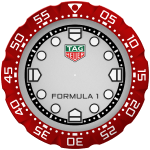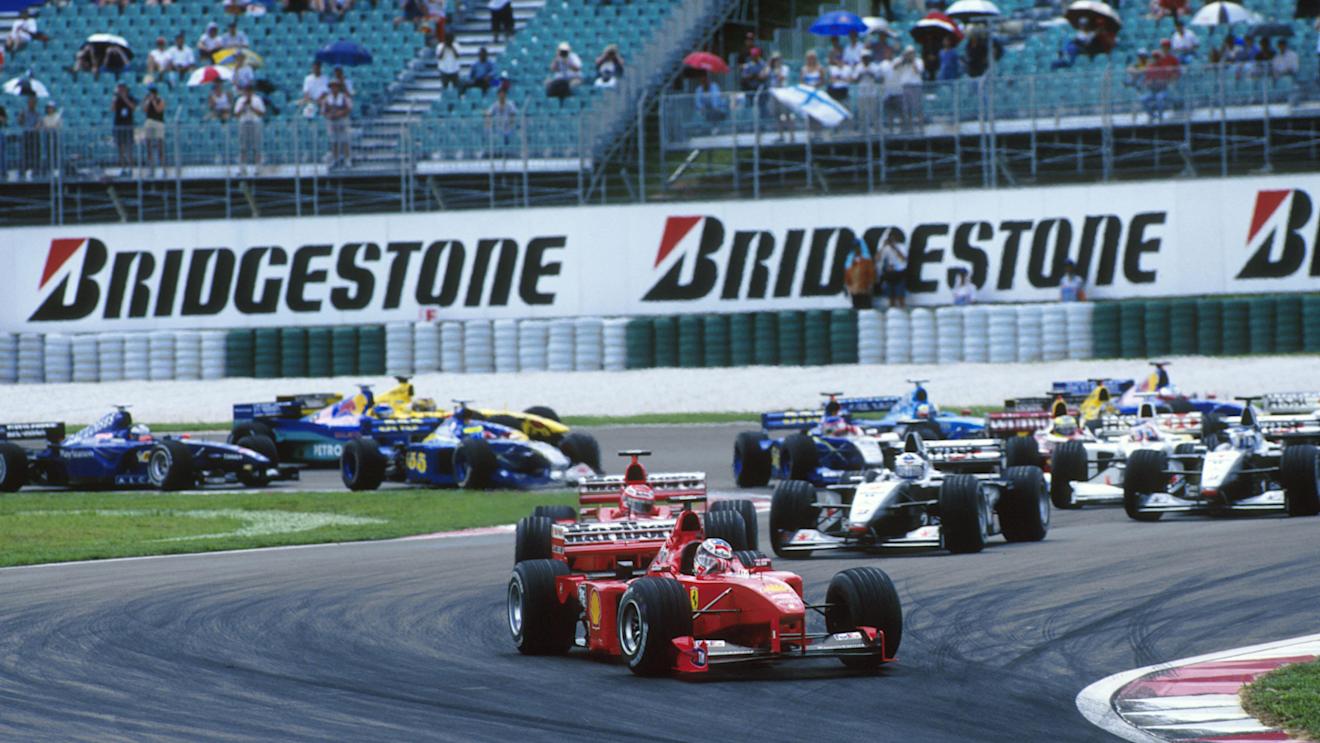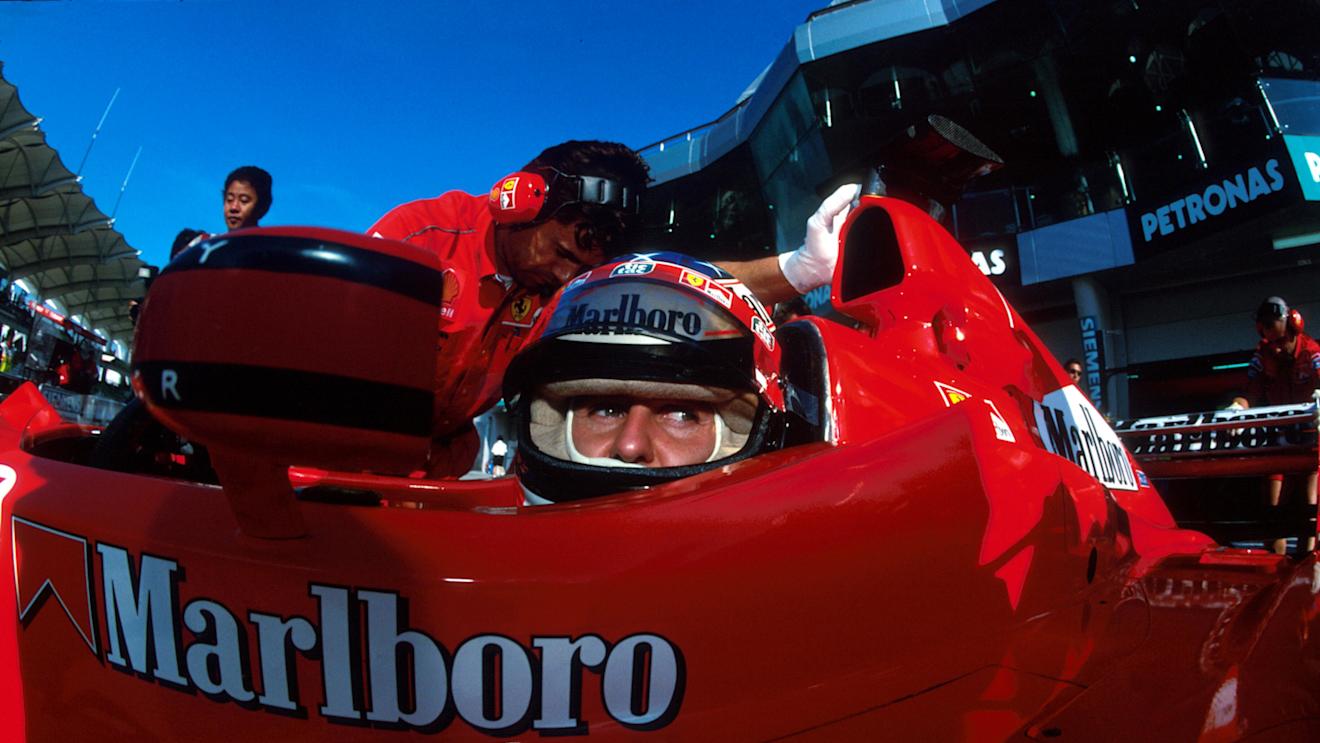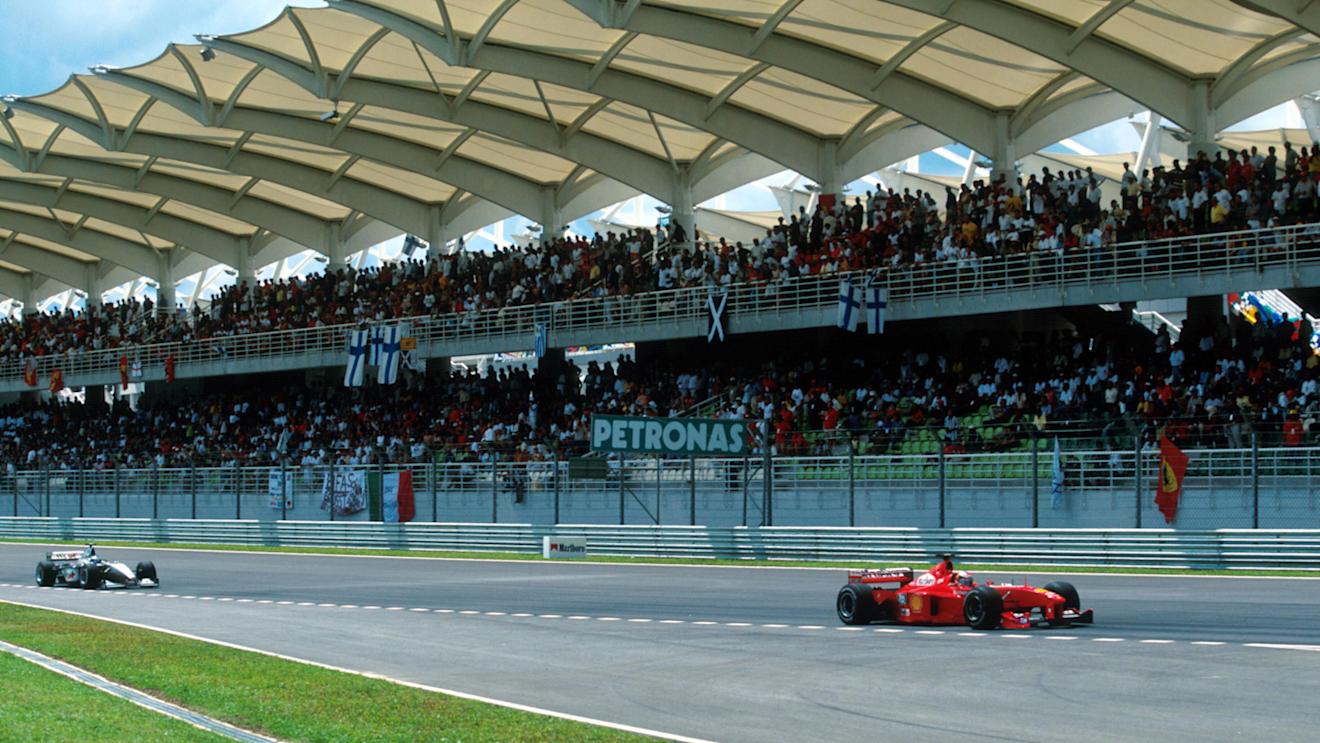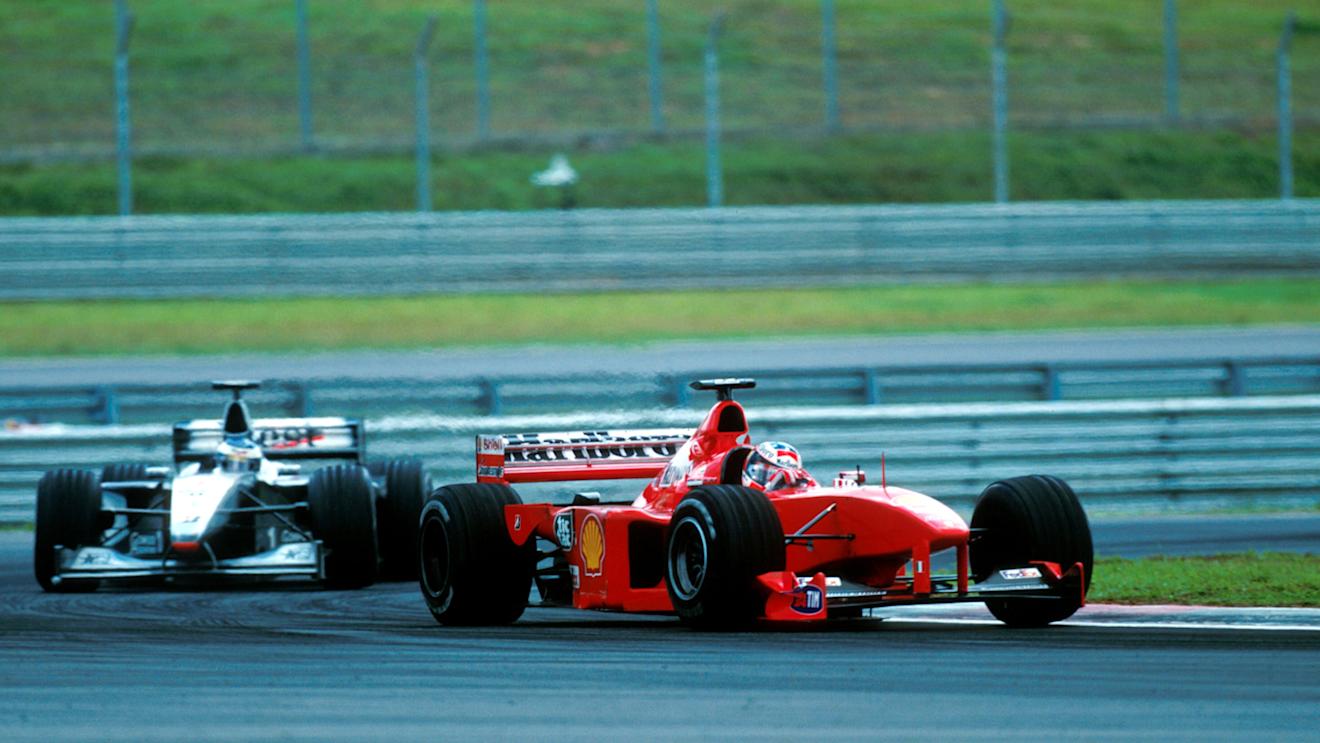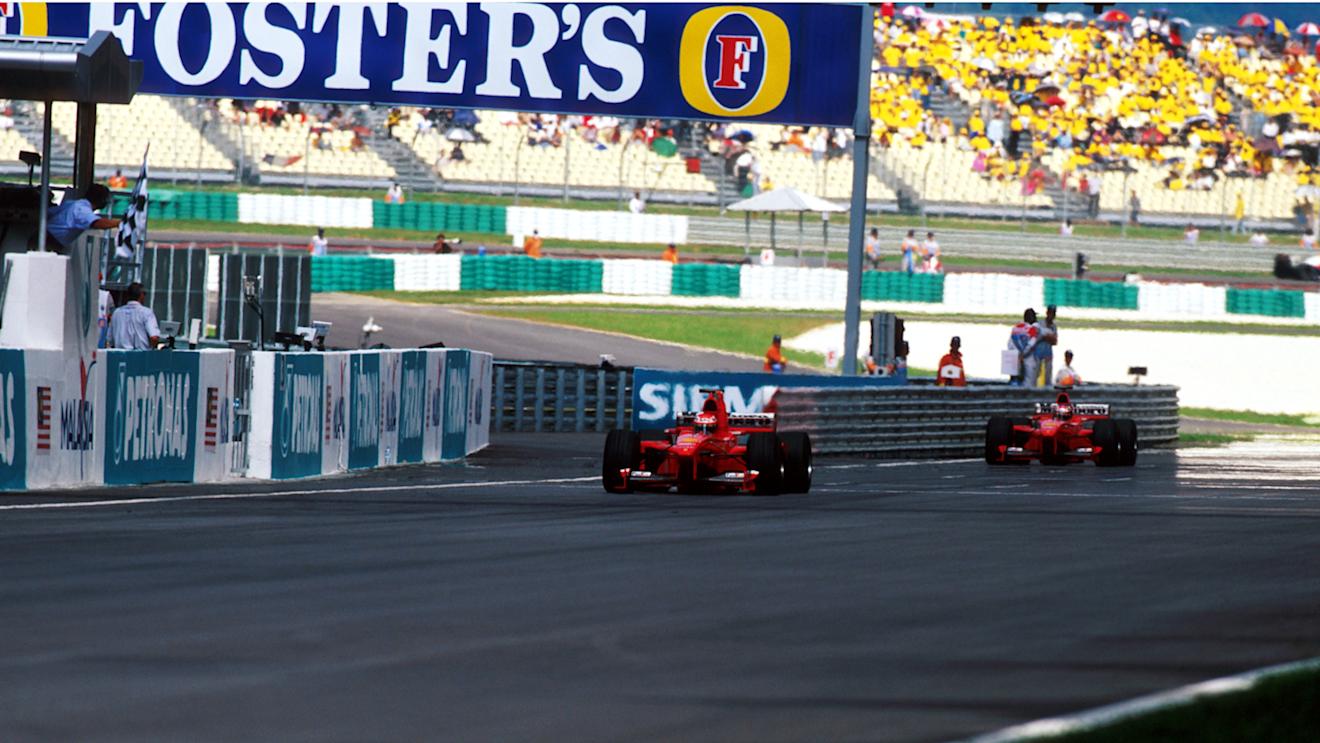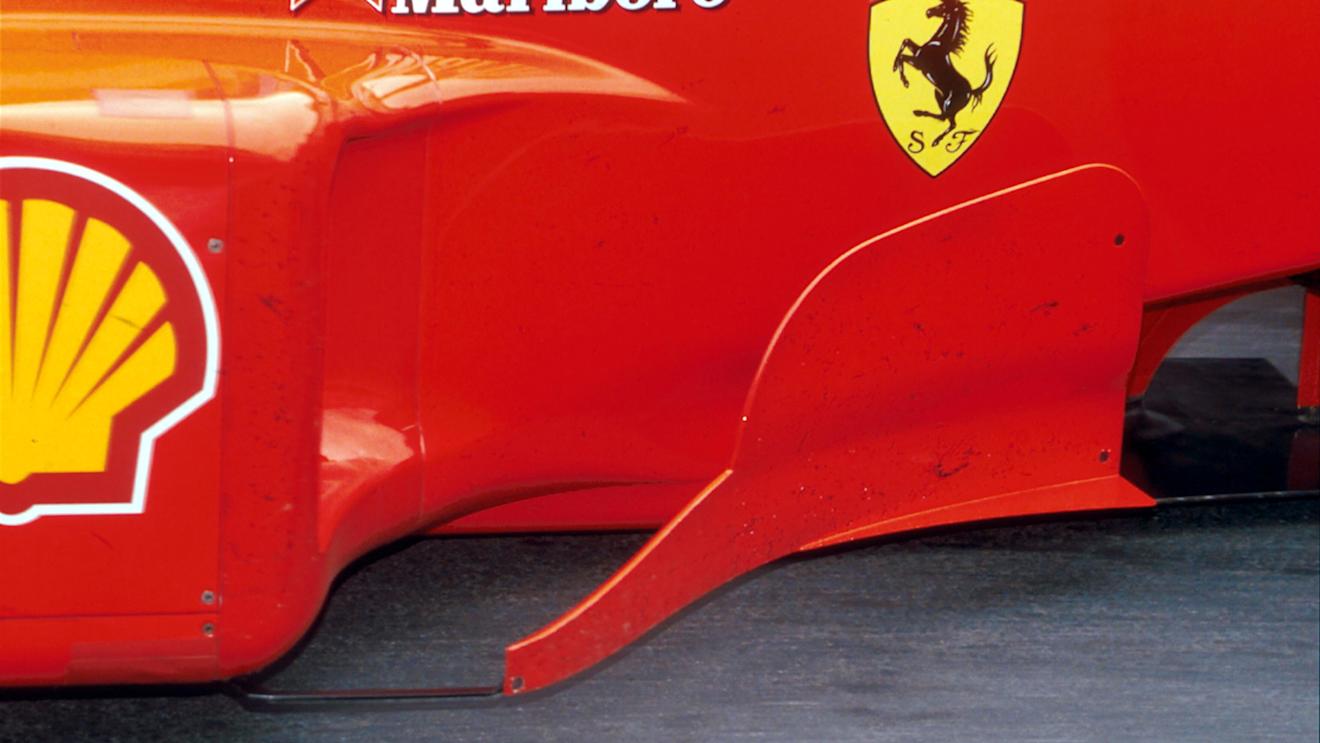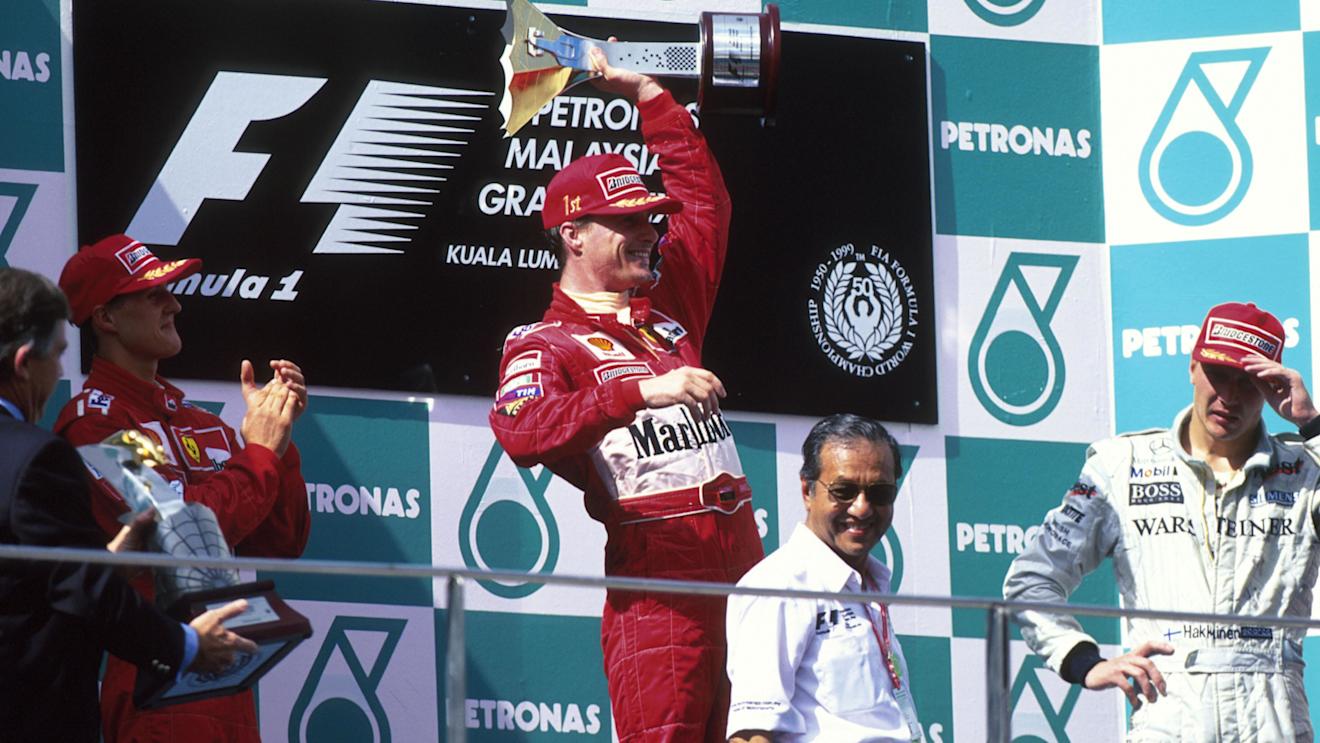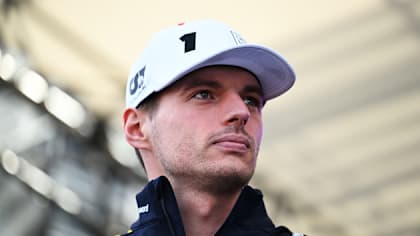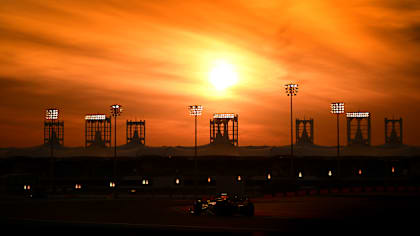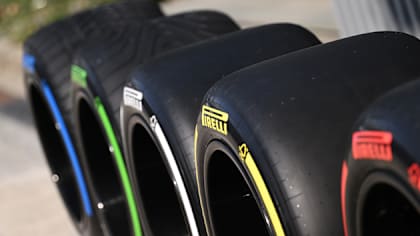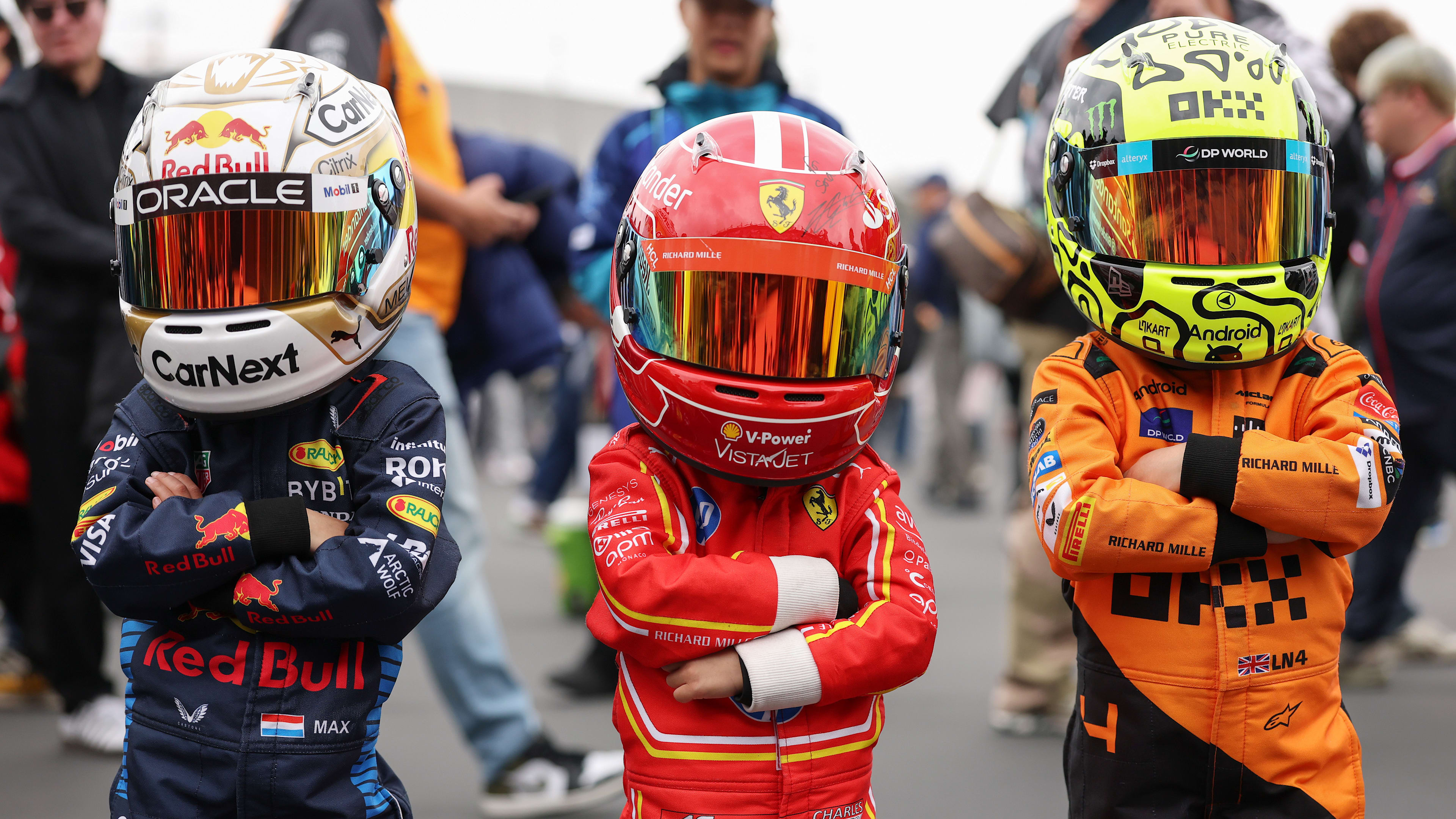When Michael Schumacher broke his leg in a nasty crash at the 1999 British Grand Prix, few expected to see him racing again that season. In the end, not only did he return, he did so at the very top of his game, much to team mate Eddie Irvine’s delight…
0.947 seconds. On the face of it that may seem like a small amount of time, but in the context of a Grand Prix qualifying session it’s a relative lifetime. It’s also the margin by which Michael Schumacher eclipsed Ferrari team mate Eddie Irvine - his closest challenger - to clinch pole position at the inaugural Malaysian Grand Prix in October 1999.
That Schumacher was so far in front of Irvine, let alone the rest of the field, was nothing short of remarkable: prior to the weekend he hadn’t driven an F1 car in anger since fracturing his leg in a brake failure-induced first lap crash at Silverstone some three months earlier. What’s more, when he had driven, in a private test at Mugello two weeks prior to the Malaysia round, he seemed reluctant to return to the cockpit, saying that his physical condition prevented him from running at his usual pace.
And yet there he was in hot and sticky Sepang, thrust back into action in the thick of a furious title fight between Irvine and McLaren’s Mika Hakkinen and comfortably showing the rest of the field the best way around the brand-new, state-of-the-art circuit. It was as if he’d never been away.
1 / 7
“I couldn't have dreamt of coming back like this a month ago,” admitted Schumacher after qualifying. “We expected to be strong here but to be one second ahead is clearly surprising. We are back with a bang!”
But as dominant as Schumacher was in qualifying, he was even more commanding in the race. In fact were it not for having to assist Irvine’s title bid - something, it was rumoured, he did somewhat grudgingly - he would probably have scored a crushing victory. As if to underline that point, Schumacher eased effortlessly away from the field as the start lights went out on race day, establishing a 1.798s lead after one lap and stretching that to 3.167s a lap later.
Team mate Irvine couldn’t live with such devastating pace, but fortunately he didn’t have to - having made his point Schumacher was now ready to play the team game, and on lap four he slowed and allowed Irvine to assume the lead, and with it, the advantage in the title race.
For a man who, for nearly four years, had made it his personal mission to deliver Ferrari a first world title since 1979, helping Irvine towards that goal can’t have been easy, but nevertheless Schumacher ably played rear-gunner for his team mate. With the Northern Irishman leading the race and mechanical trouble dropping McLaren's David Coulthard out of contention, Schumacher’s task was simply to keep Hakkinen behind - a job he did with typical precision, despite protestations from the Finn about the rather robust nature of his defence.
In the end, Schumacher’s imperious qualifying form and selfless race performance were overshadowed by a row over bargeboards which saw Ferrari temporarily excluded from the results (their one-two would be reinstated on appeal a week later). Still, neither that nor the fact that Irvine would ultimately lose out on the drivers’ title at the final round in Japan should detract from what was one of the most impressive comebacks of recent times.
As Irvine joked in the post-race press conference: "This guy (Schumacher) is depressing - not only is he the best number one (driver), he's also the best number two!”
